Symposium 2014: Reports of the Sessions
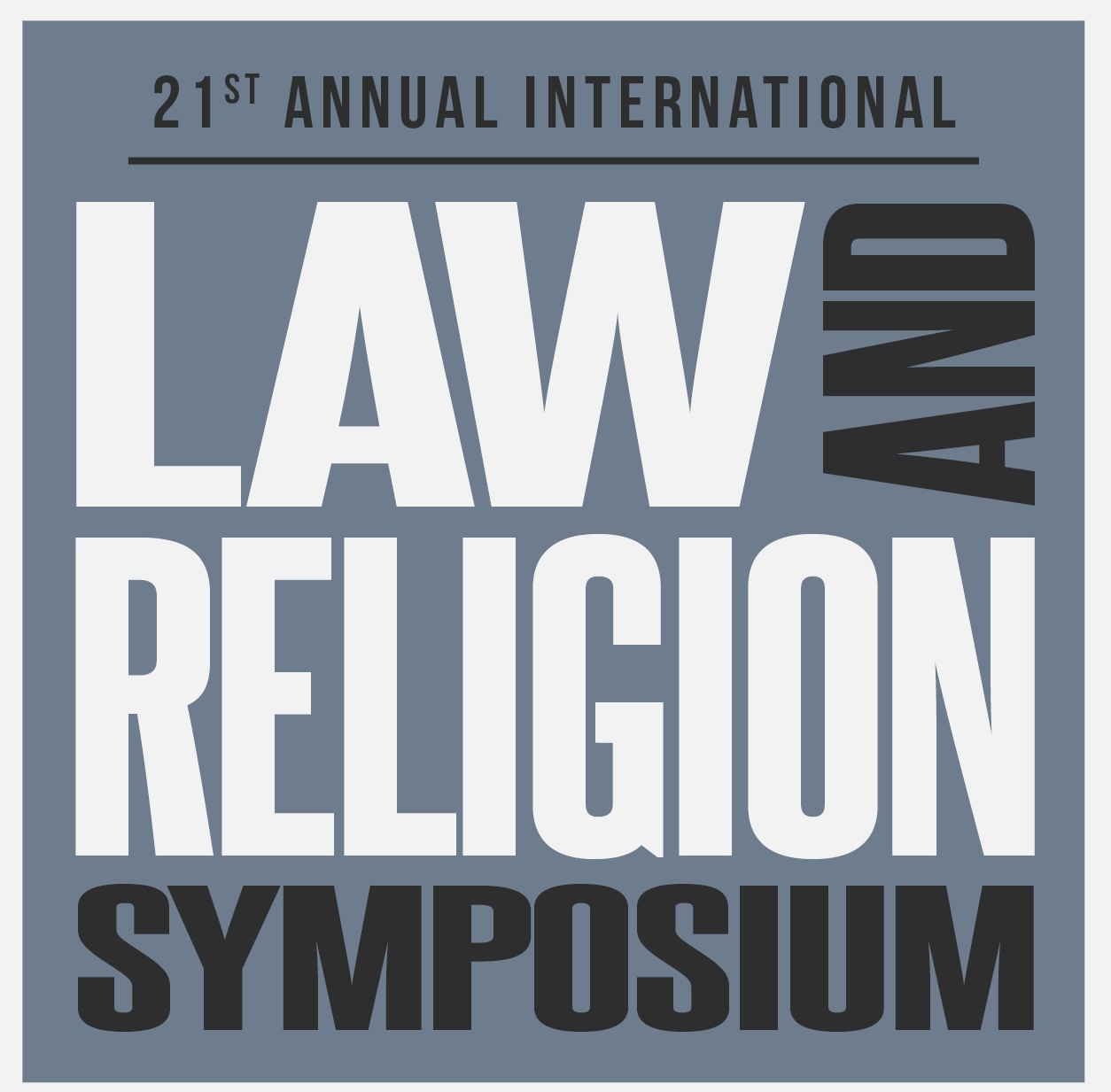
Reports of individual sessions of the 21st Annual International Law and Religion Symposium, prepared by our students and by volunteer reporters, appear here as they become available. We are grateful to those who have performed this important service.
Symposium 2014: Opening Session – Senator Hatch
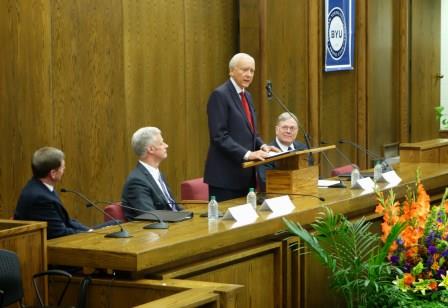
Reported by Tara Fitzgerald
United States Senator Orrin Hatch, speaking from his nearly 38 years of service in the U.S. Senate, delivered the Keynote Address at the opening session of the 21st Annual International Law and Religion Symposium held in the Moot Court Room of the J. Reuben Clark Law School on the campus of Brigham Young University in Provo, Utah. Preceding his address, welcoming remarks were given by Dean James R. Rasband, Dean of the BYU Law School, as well as President Kevin J. Worthen, President of Brigham Young University and former Dean of the Law School. Senator Hatch was also presented with the Center’s…
Symposium 2014 First Plenary Session: Secularisms, Religion, and Social Tensions
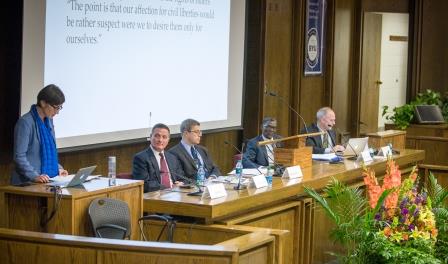
Moderator: Brett G. Scharffs, Associate Dean and Francis R. Kirkham Professor of Law; Associate Director, International Center for Law and Religion Studies, J. Reuben Clark Law School, Brigham Young University
Speakers: Brian J. Grim, President, Religious Freedom & Business Foundation; Slavica Jakelić, Associate Fellow, Institute for Advanced Studies in Culture, University of Virginia; and Assistant Professor of Humanities and Social Thought, Honors College, Valparaiso University; Akinola Ibidapo-Obe, Professor and Dean, Faculty of Law, University of Lagos, University of Lagos, Nigeria; Daniel Philpott, Professor of Political Science and Peace Studies, University of Notre Dame, Center for Civil and Human Rights, University of Notre Dame.
Symposium 2014 Second Plenary Session: Varieties of Secularism
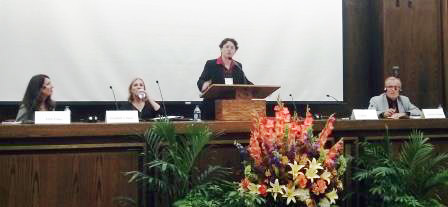
Reported by Gaylee Coverston
In this second plenary session, Elizabeth A. Clark, Associate Director of the International Center for Law and Religion Studies, moderated our distinguished delegates Elizabeth Shakman Hurd, Jean-Paul Willaime, and Effie Fokas. The session began with Professor Hurd, Associate Professor and Director of Graduate Studies at Northwestern University. With a return of religious emphasis in the United States, discussions regarding religious freedom and secularism are on the rise. She delved into the question of varieties of secularism being more a case of varieties of establishment. Establishment was clarified as a cultural understanding of a recognizable entity. In classifying forms of secularism as forms of establishment, she proposed that we can move beyond religion and secularism as individual topics and address the reality of what the two topics represent in actuality. Professor Hurd presented a brief history of the United States’ international efforts regarding religious freedom and how those efforts came from the concept of America acting as a global leader regarding the subject of freedom. She moved on to discuss issues in the U.S. foreign actions to promote religious freedom and tolerance internationally. In her presentation she unveiled the tendency for U.S. politics and political maneuvering to play a more intricate part in international religious freedom aid than is currently recognized by the average citizen. She also included how American establishment, or cultural understanding, often directs religious freedom aid. Such aid is given to entities or religions better understood and recognized by said establishment and will receive more attention than those that are not, sounding a call to be aware of this issue.
Professor Jean-Paul Willaime, Research Director of the Department of Religious Studies at Sorbonne in Paris, discussed the issues of religious freedom and education in France. He began with a historical view on the educational system in France. Historically, France had been a catholic state and education included religious catechism. As time passed, conflict between the state and private schools arose and integration of private schools receiving financing ensued. Moral and civic education replaced religious education in schools. Currently, secular knowledge and religious knowledge in compulsory education is treated as cultural facts. Great historical text are taught as that: great historical texts. These texts include literature from Homer’s Odyssey to the Bible. He concluded that religion, by nature, does not necessarily concern us but it is necessary to understand religions and freedom of conscience to promote peace and tolerance. Education on religion presented in a factual and respectful format will help us achieve that purpose.
Effie Fokas, Research Fellow at the Hellenic Foundation for European and Foreign Policy and the London School of Economics, presented her research on cultural and religious identity in the countries of Russia, Romania, Bulgaria and Greece, ” Banal , Benign or Pernicious: the relationship between religion and national identity from the perspective of religious minorities.” She discussed the intricacies of cultural and religious identity and how those subjects play an integral part in tradition and political acceptance. She categorized the impact into three types: Banal, Benign or Pernicious. Even as she presented these categories, she gave the caveat that the lines between these categories are fuzzy. She cited examples to support each category from her research with the above countries. Banal items were visible yet not necessarily problematic if accepted with respect for historical precedent. Benign issues treated practices that were necessary and positive unifiers. Finally, the pernicious encompassed things that could influence or change policy, promote misunderstanding and intolerance or limit personal and public expression of beliefs. She cited constitutional case history in the US to further define the intricacies of culture, religion and national identity, particularly citing Pledge of Allegiance cases. She concluded that the best way to resolve issues arising would be to teach culture and national identity in a different way. However, she cautioned that treating history, culture and national identity in a different way could cause friction in traditional groups and some religions.
Symposium 2014 Third Plenary Session: Aspects of Secularism
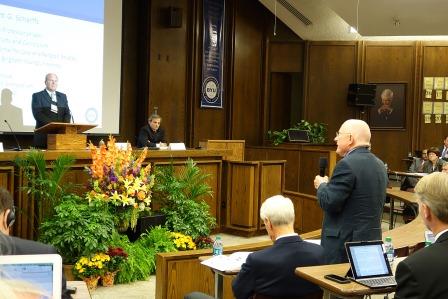
Reported by Ryan Andersen
In a session moderated by Professor Gary Doxey, Associate Director of the International Center for Law and Religion Studies, Professors Alberto Patiño Reyes, Joseph E. David, and Brett G. Scharffs discussed trends and aspects of modern secularism.
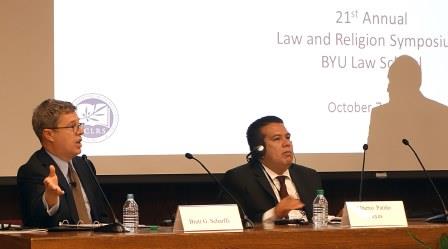
Alberto Patiño Reyes, of the University Iberoamericana – Santa Fe in Mexico City, spoke on the history and future of secularism in Latin America. He discussed the long and at times violent history of state patronage in the Roman Catholic Church throughout Latin America. He noted how some states, like Colombia and Peru, peacefully embraced a separation between church and state while others, like Mexico, required…
Symposium 2014: Conference Summation and Concluding Reflections
Reported by Jedediah Knight
Moderator: David Kirkham
Participants Panel 1: Mariano Germán Mejia Jiménez, President, Supreme Court of Justice, Dominican Republic; Tore Lindholm, Norway; Guillermo García-Montúfar, Peru; Mohd Hasbi Abu Bakar, Singapore; Lyudmila Filipovich, Ukraine
Participants Panel 2: Byun-Sun Oh, South Korea; Sue Breeze, United Kingdom; J. Clifford Wallace, Senior Judge, Ninth Circuit Court of Appeals, United States; Elizabeth Clark, United States
Concluding Speaker: W. Cole Durham, Jr., President, International Center for Law and Religion Studies
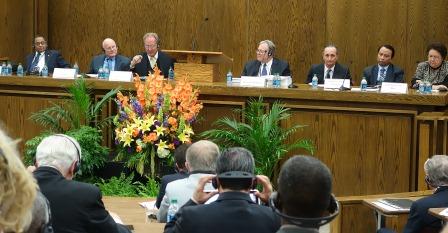
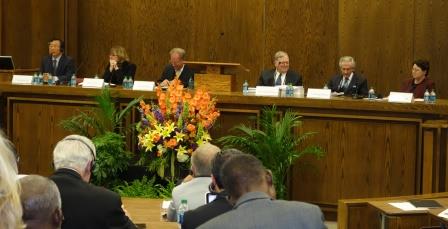
During the final plenary session, several of the presenters were given the opportunity to share their reflections on the symposium.
Tore Lindholm summarized the concept of secularism, referring specifically to political secularism as a normative idea to be applied to states consisting of a plurality…
Symposium 2014: Religious Responses to Secularisms
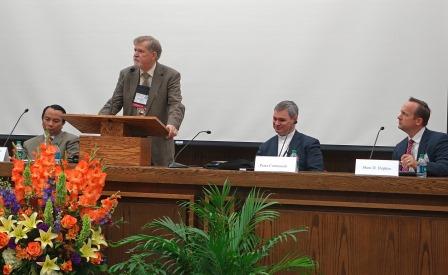
Reported by Jedediah Knight
Moderator: Shon D. Hopkin, Assistant Professor of Religious Education, Brigham Young University
Speakers: Most Reverend Peter Comensoli, Roman Catholic Archdiocese of Sydney, Australia; Mohd Hasbi Abu Bakar, President, Jamiyah Singapore; Rev. James Christie, Professor of Dialogue Theology; Director, Ridd Institute for Religion & Global Policy, University of Winnipeg, Canada
During the first break-out session of Symposium 2014, three religious leaders addressed issue of secularism and the status of religion and secularism in their respective countries.
Most Reverend Peter Comensoli presented provocative remarks on the responsibilities in secular environments of those who have religious affiliations. First, those who subscribe to a code of conduct and belief must reflect deeply on, and be able to aptly express, the reasons for their religious traditions. “Willing belief” is not sufficient; reason, not will, is the responsibility of religious adherents. Second, religious people ought to propose, not impose, their ideas. Third, tolerance is not the ideal paradigm for relations between religion and no religion. Tolerance paves the way for parties to entrench themselves in their separate camps without having to approach the other side. Rather, dialogue and friendship should be the paradigm. This idea was resisted by some in the audience, and it was proposed that tolerance is needed as a medium for dialogue. Bishop Comensoli urged, however, that when tolerance becomes the paradigm, it fosters division and prohibits engagement. When there is no engagement, there is no progress towards friendship. Finally, it is observed that when people immigrate from societies that are deeply materialistic and secular to societies that are more religious, there is a high level of conversion. Each human being has an innate sense of the transcendent. This provides hope for the future because it demonstrates that the secular paradigm will not always be the prevailing one.
Mohd Hasbi Abu Bakar presented an overview of religion and secularism in Singapore. Models of secularism depend upon how jurisdictional boundaries are defined, but, generally, a secular state is one that is not influenced by religion and treats all religions equally by avoiding preferential treatment. The model in Singapore is “secularism with a soul,” where religion does not mix with politics, but it can influence public policy. Indeed, Singapore is the world’s most religiously diverse country. The constitution protects the right to “profess, practice, and propagate” one’s religion, curtailed only by the requirement that one’s actions are not contrary to general law, public health, or morality. The government makes efforts to preserve social harmony, and it also makes efforts to protect the government from religious influence. Religions in Singapore must be registered, but even if one is not, its adherents still have the right to profess, practice, and propagate. Aggressive and insensitive proselyting is also restricted, and discrimination based on religion is prohibited. Singapore is accommodationist. Thus, religious holidays are recognized, and Sharia courts can be binding on adherents. The government is not interested in the veracity of adherents’ beliefs. Finally, the government prohibits religious organizations from being political, but they are encouraged to work with the government on implementing policies.
Reverend James Christie reflected on attitudes towards secularism in Canada. Secularism is the elephant in the room. There are four primary religious constituencies: (1) the devotedly religious, (2) the anti-religious, (3) the spiritual but not religions, and (4) the utterly indifferent. The dialogue between these groups is facilitated by the prevailing Canadian social value of peaceful coexistence: human rights. There are four themes that represent the struggle of religions to live together in Canada. First is the question of the appropriate nature of supervision of religion in a secular state. Religions help define the nature of supervision by supporting one another in their freedom of religious expression. Second is the ongoing process of engagement between religion and civil society. Religious leaders can come together to urge society towards goals in the development of the human condition. Third is making the question of secularism more tangible. Fourth is to encourage interreligious collaboration. To conclude, Canada is a secular society. There will be no peace until there is dialogue, and the dialogue must occur within the context of the secular society.
Symposium 2014: Latin America
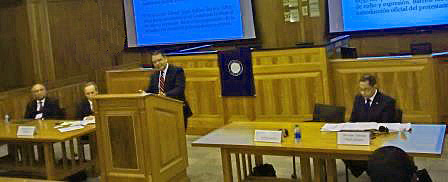
Reported by Tara Fitzgerald
The Latin America Breakout Session held on Monday, October 6, 2014 in JRLB 205 was moderated by Professor Guillermo Garcia-Montufar of the University of Lima and consisted of a panel of government leaders from Peru, the Dominican Republic, and Guatemala.
Peru Congressman Julio Rosas Huaranga opened his remarks by expressing concern that religious freedom is being taken away in his country and that secularism is making its way into politics. He explained that although the constitution guarantees freedom of religion, opinion, and conscience, he is no longer able to speak from his own perspective because of a resolution that identifies religion as more of a private view than a public matter. He expressed his belief that religion is important because of its principles and values that influence society, and that it needs to be present not only in society, but in the government and many other spheres of life.
Mariano German Mejia Jimenez, President of the Dominican Republic Supreme Court of Justice, acknowledged that religion has been present in society from the beginning of man, beliefs are substantial, and that Church and State have never been strangers to each another. The Dominican Republic Constitution declares Catholicism as the official religion, but freedom of religion, including practice and association, is guaranteed. As an example, Law 198 No. 11 regulates marriages and gives to celebrated marriages in all religions the same benefits given through the Catholic Church. He concluded that religion and government can coexist, and that all religions can be supported notwithstanding their differences.
Guatemala Congressman Selvin Garcia laid out some historical and legal framework as a basis for his remarks. He introduced legislation on freedom of religion (Article 36) and explained that the Catholic Church is already constituted, but that other religions have free exercise and can receive public recognition as well. He then discussed a case featuring a clash toward freedom of religion concerning an orthodox Jewish community that migrated to Guatemala from Canada because of persecution and was threatened to leave by the local municipality if they did not adapt to the municipality’s street code. He explained that this case has produced a lot of critics but has not been followed through. Congressman Garcia concluded his remarks by describing how religion in Guatemala has changed significantly by its increasing number of Christians and decreasing number of Catholics.
Symposium 2014: Vietnam & Lao Democratic People’s Republic
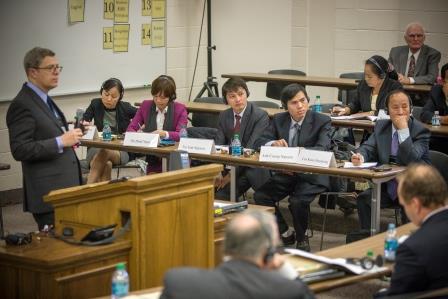
Vietnam Report by Jarvis Yau
Presentation by the scholars from Vietnam was among the Symposium’s first breakout sessions on October 7th, 2014. It was moderated by Brett G. Scharffs, Associate Dean for Faculty and Curriculum at Brigham Young University’s J. Reuben Clark Law School, and Associate Director of the International Center for Law and Religion Studies. From among the six members of the delegations from Vietnam and the Lao Democratic People’s Republic, three spoke: Dr. Anh Cuong Nguyen and Tai Tim Nguyen of Vietnam and Ly Koua Sayaxang, Permanent Acting President, Lao Front for National Construction of Vientiane Capital City….
Symposium 2014: Central Europe
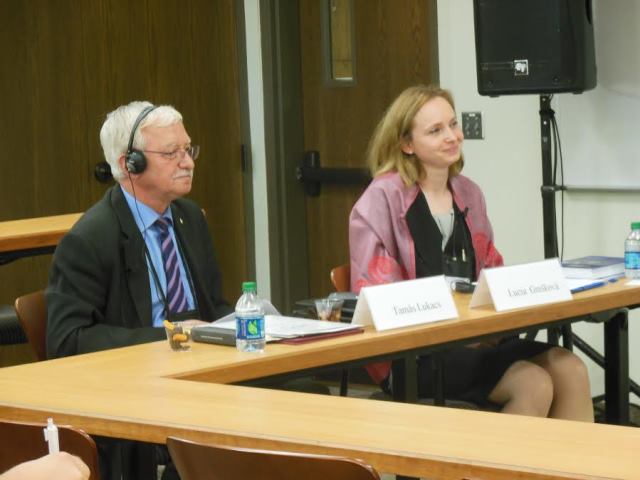
Reported by Christina Champenois
Moderator: Wade Jacoby, Mary Lou Fulton Professor of Political Science and Director of the Center for the Study of Europe, Brigham Young University
Speakers: Tamás Lukacs, former Member of Hungarian Parliament, Chair of the Committee for Human Rights, Minorities, Civil and Religious Affairs; current President, Hungarian Independent Police Complaints Board; Henryk Hoffmann, Director, Department of Religious History, Institute of Religious Studies, Jagellonian University, Poland, with Anna Książek, graduate student, Department of Religious History, Jagellonian University, Poland; Lucia Grešková, Deputy Director, Ministry of Culture…
Symposium 2014: Mexico
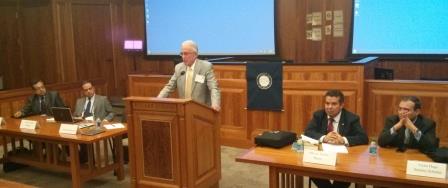
Reported by Gaylee Coverston
In this session, Center International Fellow J. Stanley Martineau moderated, with Víctor Hugo Sánchez Zebadúa, Sub-Secretary of Religious Affairs of the State Government of Chiapas, Alberto Patiño Reyes, Professor of Law and Religion in the department of the Iberoamericana University in Mexico City, Vicente Segú Marcos, Director of “La Fundación”, and Jorge Lee Galindo, Director General, Lee and Associates Law…
Symposium 2014: Australia
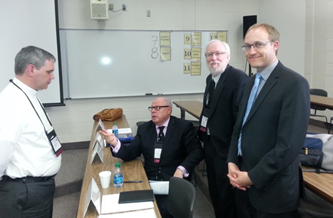
Reported by Jordan Pendergrass
On Monday, 6 October 2014, an entire session of the International Law and Religion Symposium was dedicated to Australia. Two points during the breakout session became very clear: change in Australia is happening and religious freedom is becoming an increasingly important right. In a session moderated by Arthur L. Edgson, the experts who delivered remarks during this session were Neil Foster, Professor, Newcastle Law School; Neville Rochow, Barrister/Board Member, University of Adelaide Research Unit for Society, Law, and Religion; and Nigel Zimmermann, Private Secretary to Most Reverend…
Symposium 2014: Middle East and North Africa
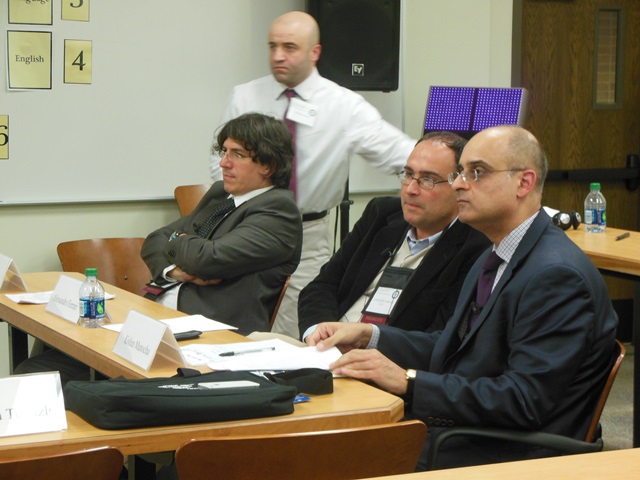
Reported by Christina Champenois
Moderator: Shadman Bashir, Visiting Professor of Law and International Relations, History and Political Science Department, Dixie State University
Speakers: Lami Bertan Tokuzlu, Assistant Professor, Ýstanbul Bilgi Üniversitesi Dolapdere Kampüsü, Turkey; Alessandro Ferrari, Associate Professor, Department of Law and Economics of Films and Persons, University of Insubria, Italy; Kishan Manocha, Lecturer, University of East London School of Law, UK and School of International Law, Pakistan
Lami Bertan Tokuzlu focused on secularism and…
Symposium 2014: Latin America – Governmental Perspectives
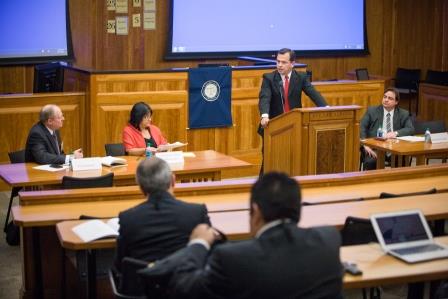
Reported by Jordan Pendergrass
The theme of the 21st Annual International Law and Religion Symposium was “Varieties of Secularism, Religion, and the Law”. On 7 October 2014, one session was devoted to the perspectives of Latin American governments. The session was moderated by Scott Isaacson, Regional Coordinator for Latin America of the International Center for Law and Religion Studies.
The first presentation during the session was given by Frezia Sissi Villavicencio Rios, General Director of Justice and Religion, Ministry of Justice of Peru. Ms. Villavicencio demonstrated that the current intersection of law and religion in Peru is linked to its past. She noted the country’s diverse religious landscape and the fact that, notwithstanding the significant impact of colonization, many indigenous religions remain. Indigenous peoples, including the Andean…
Symposium 2014: Freedom of Religion and Belief and European Union Foreign Policy
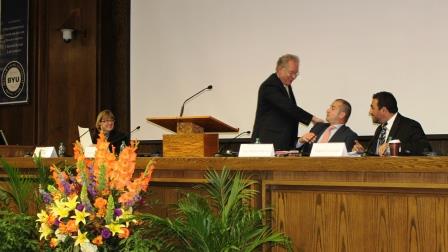
Reported by Ryan Andersen
Professor David Kirkham led a panel discussion on Freedom of Religious Belief and European Union Foreign Policy. Along with Professor Kirkham, Jean-Bernard Bolvin of the European External Action Service, Susan J. Breeze of the of the UK Foreign & Commonwealth Office’s Human Rights & Democracy Department, and Pasquale Annicchino of the European University Institute, discussed the goals, methods, and methods used in promoting the freedom of religious belief around the world.
…
Symposium 2014: Japan and South Korea
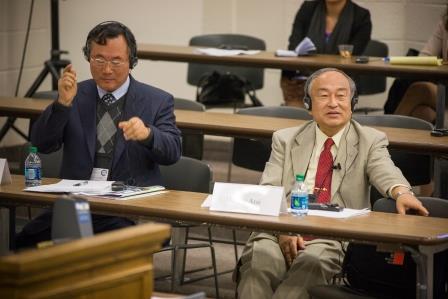
Reported by Richard Alex Storms
A breakout session on Tuesday, October 7, 2014, was moderated by Mark A. Peterson, Associate Professor of Korean, Brigham Young University. There were two speakers who presented. The first speaker was Makoto Arai, Prof. Dr., Chairman, Religious Juridical Persons Council, Government of Japan and Professor, Chuo University Faculty of Law, Japan. The second speaker was Byung-Sun Oh, Professor Emeritus, Sogang University Law School, South Korea.
Professor Arai spoke about how religion and charitable trusts have worked together in Japan to help people. He first spoke about one of the most famous Buddhist monks in Japanese history, Kukai. In 828, Kukai established…
Symposium 2014: Democratic Republic of Congo and Nigeria
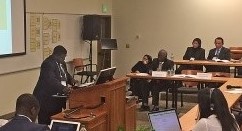
Moderator: Leslie A. Hadfield, Assistant Professor of History, Brigham Young University
Speakers:
André Makengo Kisala Mazyambo, Professor, University of Kinshasa
Femi Falana, Hallmarks of Labor, Nigeria
Katshung Joseph Yav, Professor, Yav & Associates
Symposium 2014: Brazil and Guyana
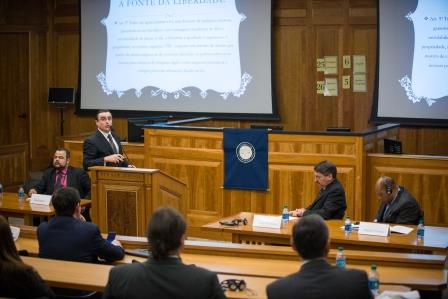
Reported by Gaylee Coverston
Moderator: Gregory G. Clark, International Fellow, International Center for Law and Religion Studies, J. Reuben Clark Law School, Brigham Young University
Speakers: Uziel Santana, President, ANAJURE (National Association of Evangelical Jurists); Luigi Braga, General Counsel, South American Division, Seventh-day Adventist Church; Acyr de Gerone, Lawyer, Brazil Bar Association, Religious Freedom Committee of the BAR Association of Paraná State of Brazil; Raphael Trotman, Speaker, National Assembly of Guyana
This session began with Dr. Uziel Santana, President of ANAJURE, the National Association of Evangelical Jurists and a tenured professor…
Symposium 2014: Religious and Theoretical Understandings of Secularism
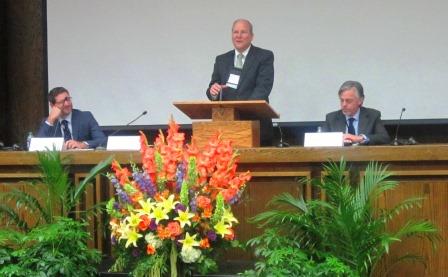
Reported by Roman Harper
This session, moderated by James A. Toronto, involved presentations by Andrea Pin, a professor at the University of Padova, Italy and Michael Casey, private secretary to the Catholic Archdiocese of Sydney, Australia.
Mr. Casey presented on work that he is doing regarding “pathologies of religion and reason.” His basic premise, which he highlighted with several examples, is that either religion or reason can “become strange creatures when separated from each other.” One very poignant example shared was the current trend of recasting reasoned opposition in certain controversies as simple intolerance. This pretends to make certain groups lose a debate without truly evaluating the merits of the arguments made.
Mr. Pin discussed the current requirement that religious laws be translated into secular terms for the judicial system. He described the problems this creates for religion when certain arguments cannot be effectively “translated” into secular terms. Essentially, when such a translation is required and cannot be provided, the party relying on religious law automatically loses the debate. The ultimate conclusion, requiring sufficient explanation of religious law is an acceptable burden, but demanding a secular translation is too burdensome and subjective and should thus not be required.
Symposium 2014: Indonesia and Malaysia
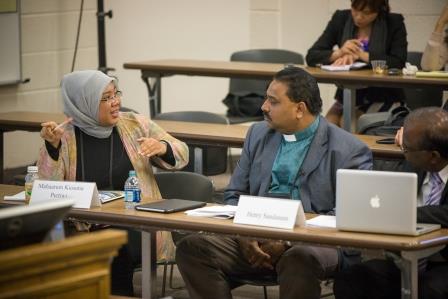
Moderator: J. Clifford Wallace, Chief Judge Emeritus, U.S. Court of Appeals for the Ninth Circuit
Speakers: Mahaarum Kusuma Pertiwi, Lecturer, Universitas Gadjah Mada Faculty of Law, Indonesia; Rev. Henry Sandanam, Association of Social Services and Community Development, Gombak District, Malaysia
Symposium 2014: Russia and Armenia
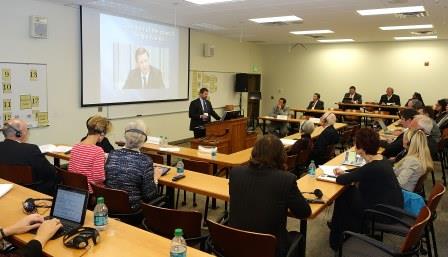
Moderator: N. Anthony Brown, Associate Professor of Russian, Brigham Young University
Speakers: Oleg Yurevich Goncharov, Member, Council for Cooperation with Religious Organizations under the President of the Russian Federation; Hovhannes Hovhannisyan, Associate Professor, Faculty of Theology, Yerevan State University, Armenia
Symposium 2014: European Perspectives on Secularism
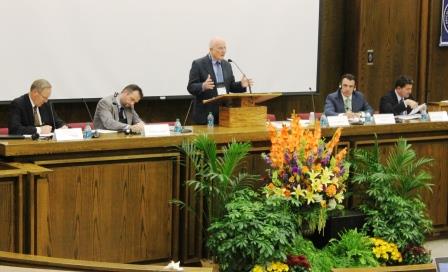
Reported by Gaylee Coverston
In this session regarding European Perspectives on Secularism, Robert Smith moderated the panelists Tore Lindholm of Norway, Ricardo García García of Spain, Denis J. Edwards of the United Kingdom, and Vanja-Ivan Savić of Croatia.
Tore Lindholm is a Professor Emeritus of the Norwegian Center for Human Rights, University of Oslo. He is a Board Member for the Oslo Coalition of Freedom of Religion or Belief and also for the Human Rights Committee of the Church of Norway. Professor Lindholm began…
Symposium 2014: Philippines
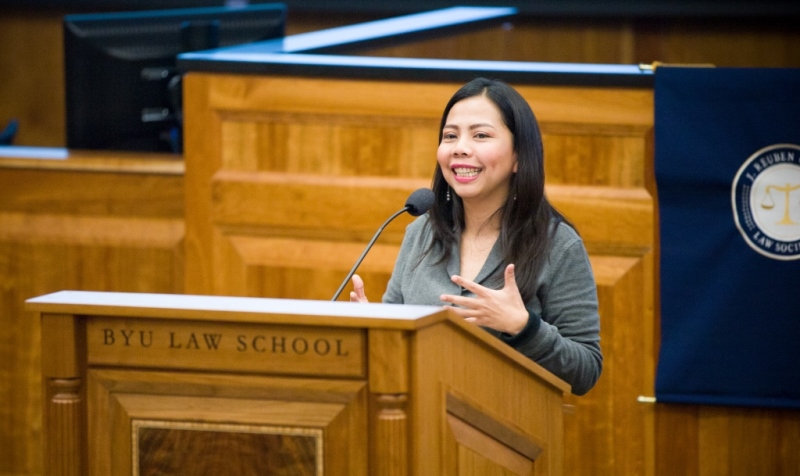
Moderator: Victor A. Taylor, International Fellow, International Center for Law and Religion Studies
Speakers: Malou Mangahas, Executive Director, Philippine Center for Investigative Journalism; Maria Cecilia de los Reyes, Training Director, Philippine Center for Investigative Journalism
Symposium 2014: Mongolia
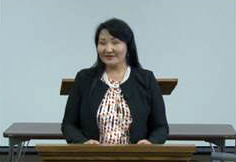
Reported by Page Johnson
Moderator: Richard H. Page
Choinorov Sunrevtsoodol Khukhdandar
Prefacing her remarks with a quick overview of Mongolian topography and history, Choinorov Sunrevtsoodol Khukhdandar, senior official in the Ministry of Labor, discussed her country’s religious policy towards its population of 2.9 million. Of this group, 95% are Mongolian and 4.9 % are Kazakhs. One in every five Mongolians believes in traditional religion. A main theme of this paper is that as government policies and attitudes to religion have changed, religious beliefs have changed also. The present government is supportive of new religious developments if they…
Symposium 2014: Ukraine
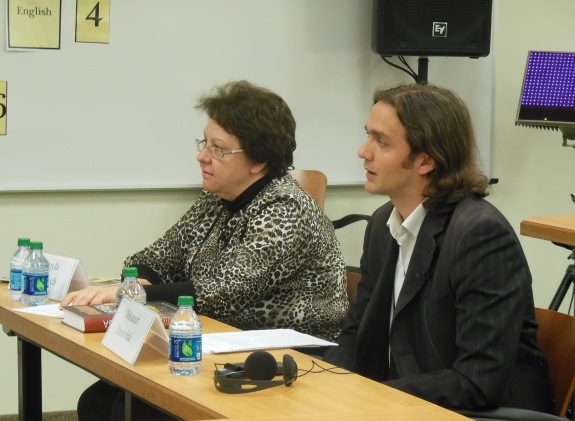
Speakers: Oleksandr Zhuravchak, Deputy Minister of Culture of Ukraine, Ministry of Culture of Ukraine; Liudmyla Fylypovych, Professor, Lecturer on Law and Religion, Center for Religious Information and Freedom, Institute of Philosophy, National Academy of Sciences of Ukraine